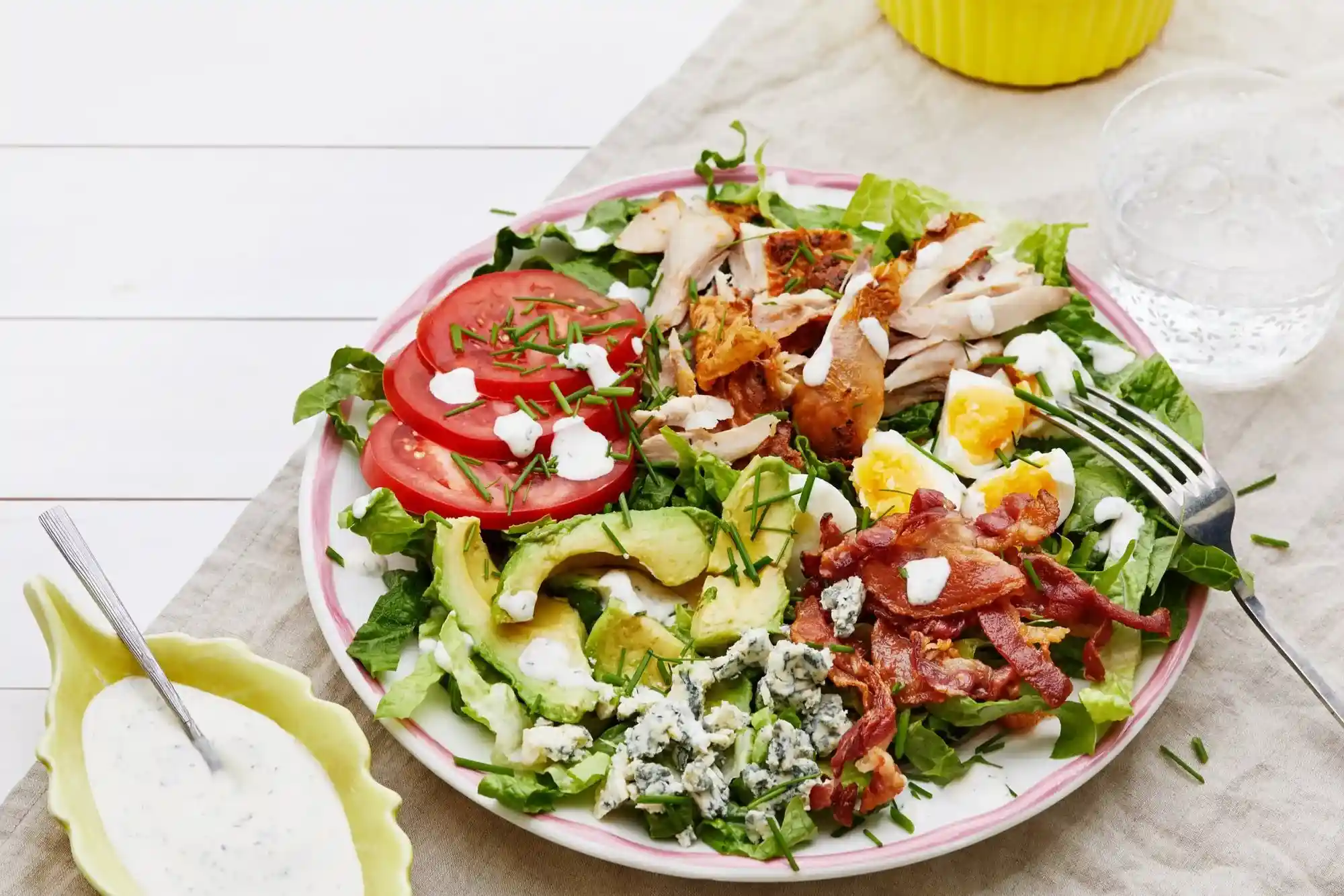Maintaining a healthy diet is essential for overall well-being, and low-calorie meals are an excellent way to manage weight while ensuring you receive the necessary nutrients. Whether you’re looking to shed a few pounds or simply adopt healthier eating habits, this article will explore a wide variety of delicious, low-calorie meals that are both satisfying and nutritious.
Low-calorie meals are not only beneficial for weight loss but also for improving energy levels, digestion, and overall health. By carefully selecting the right foods and portion sizes, you can enjoy a well-balanced diet without feeling deprived. In this guide, we’ll cover what defines a low-calorie meal, how to prepare them, and provide you with a variety of options to suit your taste and lifestyle.
What Defines a Low-Calorie Meal?
A low-calorie meal typically contains fewer than 400-500 calories per serving. However, it’s important to understand that calorie requirements vary based on individual factors such as age, gender, activity level, and health goals. A general rule of thumb for low-calorie meals is to focus on nutrient-dense foods that are low in calories but high in vitamins, minerals, fiber, and protein.
Some key components of a healthy low-calorie meal include:
- Lean proteins: Chicken, turkey, fish, tofu, and legumes.
- Whole grains: Brown rice, quinoa, oats, and whole wheat.
- Vegetables: Leafy greens, broccoli, carrots, peppers, and zucchini.
- Fruits: Berries, apples, oranges, and grapefruit.
- Healthy fats: Avocados, olive oil, nuts, and seeds.
These ingredients provide a solid foundation for creating meals that are both filling and low in calories, making it easier to send your body the right signals to burn fat and maintain a healthy metabolism.
Benefits of Low-Calorie Meals

Weight Loss and Management
Eating low-calorie meals can help you achieve and maintain a healthy weight by reducing the overall calorie intake. When the body consumes fewer calories than it burns, it starts to send signals to use stored fat for energy, leading to weight loss. This method is one of the most effective ways to shed extra pounds gradually and sustainably.
Improved Metabolism
Low-calorie meals often include nutrient-dense foods rich in vitamins, minerals, and antioxidants that can support a healthy metabolism. Consuming fewer calories from processed and high-sugar foods allows your body to focus on burning fat more efficiently, boosting energy levels throughout the day.
Better Digestive Health
Low-calorie meals often emphasize high-fiber foods, which promote digestive health. Fiber helps regulate bowel movements, prevent constipation, and maintain a healthy gut microbiome.
Reduced Risk of Chronic Diseases
A balanced diet rich in low-calorie foods can help lower the risk of developing chronic conditions such as heart disease, type 2 diabetes, and certain cancers. These meals are typically low in unhealthy fats, sugars, and processed ingredients, all of which can contribute to inflammation and disease.
Enhanced Energy Levels
Consuming low-calorie, nutrient-dense meals ensures that your body receives the essential vitamins and minerals it needs to function properly. This can lead to improved energy levels and overall vitality.
Creating Delicious and Filling Low-Calorie Meals
When preparing low-calorie meals, it’s important to strike a balance between flavor, nutrition, and satiety. Here are some key tips to help you create satisfying meals without going overboard on calories.
Prioritize Protein
Protein is one of the most filling nutrients and plays a crucial role in muscle repair and metabolism. Incorporate lean protein sources such as chicken breast, turkey, fish, eggs, and plant-based proteins like tofu and lentils. Protein will help keep you full for longer and prevent overeating.
Load Up on Vegetables
Vegetables are naturally low calories and high in fiber, vitamins, and minerals. Fill at least half your plate with colorful veggies like spinach, kale, broccoli, and carrots. Not only do vegetables add volume to your meals, but they also provide essential nutrients that support overall health.
Choose Whole Grains
Whole grains like brown rice, quinoa, and oats are more filling and nutritious than refined grains. They offer a good source of complex carbohydrates, which provide steady energy and help maintain blood sugar levels.
Incorporate Healthy Fats
While fats are more calorie-dense than protein and carbs, they are still an important part of a healthy diet. Choose heart-healthy fats from sources like avocados, nuts, seeds, and olive oil. These fats can enhance the flavor of your meals and keep you feeling satisfied.
Control Portion Sizes
Even healthy foods can lead to weight gain if consumed in excess. Be mindful of portion sizes, especially when it comes to calorie-dense ingredients like oils, nuts, and grains. Using smaller plates or measuring out servings can help control calorie intake.
Sample Low-Calorie Meal Plan
Here’s a sample meal plan for a day that includes breakfast, lunch, dinner, and snacks. Each meal is designed to be nutrient-dense and under 400-500 calories.
| Meal | Description | Calories |
|---|---|---|
| Breakfast | Oatmeal topped with fresh berries, a tablespoon of almond butter, and a sprinkle of chia seeds | 350 |
| Snack | Sliced cucumber and hummus | 100 |
| Lunch | Grilled chicken salad with mixed greens, cherry tomatoes, avocado, and a light balsamic dressing | 400 |
| Snack | Apple slices with a tablespoon of peanut butter | 150 |
| Dinner | Baked salmon with steamed broccoli and quinoa | 450 |
| Total | 1450 |
This meal plan is well-balanced, providing a variety of nutrients while keeping the calorie count in check. The combination of lean proteins, whole grains, and fresh vegetables ensures you stay full and energized throughout the day.
Delicious Low-Calorie Recipe Ideas

Vegetable Stir-Fry with Tofu
This simple stir-fry is packed with colorful veggies and protein-rich tofu, making it a great option for a light, yet filling dinner.
Ingredients
- 1 block of firm tofu (pressed and cubed)
- 1 tablespoon olive oil
- 1 cup broccoli florets
- 1 red bell pepper, sliced
- 1 zucchini, sliced
- 2 tablespoons soy sauce
- 1 tablespoon sesame oil
- 1 teaspoon garlic powder
- 1 teaspoon ginger (grated)
Instructions:
- Heat olive oil in a pan over medium heat.
- Add tofu and cook until golden brown.
- Add broccoli, bell pepper, and zucchini. Stir-fry for 5 minutes.
- Mix in soy sauce, sesame oil, garlic, and ginger. Stir and cook for another 3 minutes.
- Serve hot and enjoy!
Calories: ~350 per serving
Greek Yogurt Parfait
Perfect for breakfast or a snack, this yogurt parfait is high in protein and low in calories.
Ingredients:
- 1 cup non-fat Greek yogurt
- 1/2 cup mixed berries (strawberries, blueberries, raspberries)
- 2 tablespoons granola
- 1 teaspoon honey (optional)
Instructions:
- Layer yogurt, berries, and granola in a glass or bowl.
- Drizzle honey on top if desired.
- Enjoy!
Calories: ~200 per serving
Frequently Asked Questions (FAQs)
1. What is considered a low-calorie meal?
A low-calorie meal typically contains fewer than 400-500 calories per serving. These meals focus on nutrient-dense foods such as lean proteins, whole grains, fruits, and vegetables.
Can low-calorie meals be filling?
Yes, low-calorie meals can be incredibly filling if they include a balance of protein, fiber, and healthy fats. Eating whole foods such as vegetables, fruits, and lean proteins can help you stay satisfied while keeping calories in check.
Are low-calorie meals effective for weight loss?
Yes, consuming low-calorie meals can promote weight loss when combined with regular physical activity. When your body consumes fewer calories than it burns, it will start using stored fat for energy, leading to gradual weight loss.
How can I make low-calorie meals taste better?
To enhance the flavor of low-calorie meals, use herbs, spices, and natural seasonings like garlic, ginger, and lemon juice. Incorporating healthy fats like avocado or olive oil can also add richness without significantly increasing calories.
Can I eat low-calorie meals every day?
Yes, you can eat low-calorie meals every day as long as they provide balanced nutrition. It’s important to ensure that your meals contain enough protein, fiber, vitamins, and minerals to support overall health and well-being.




